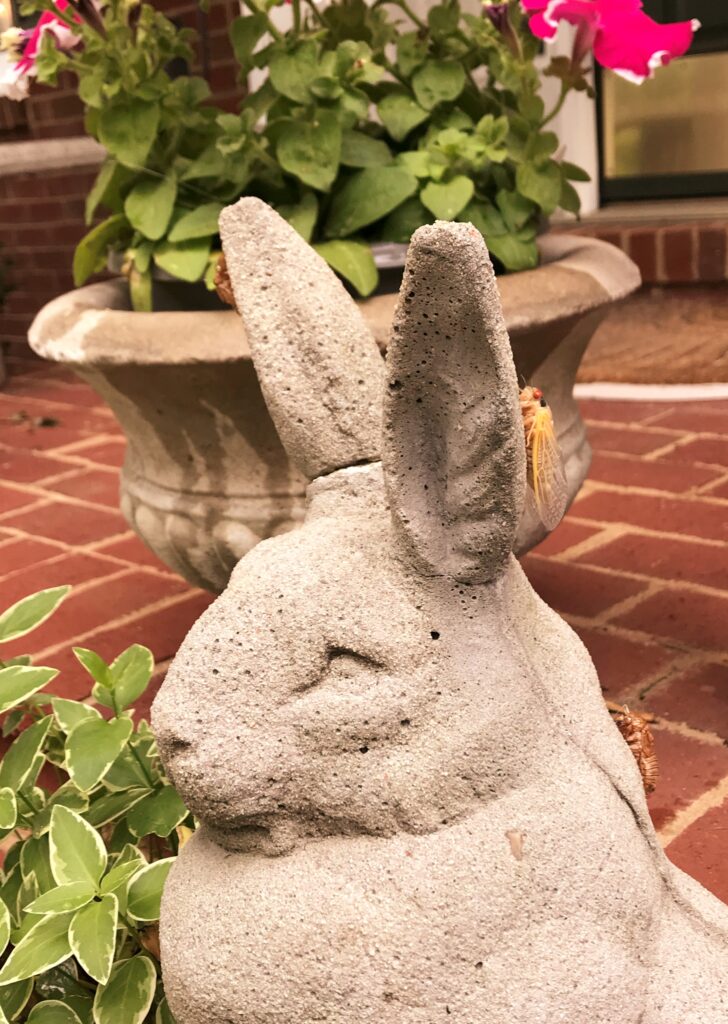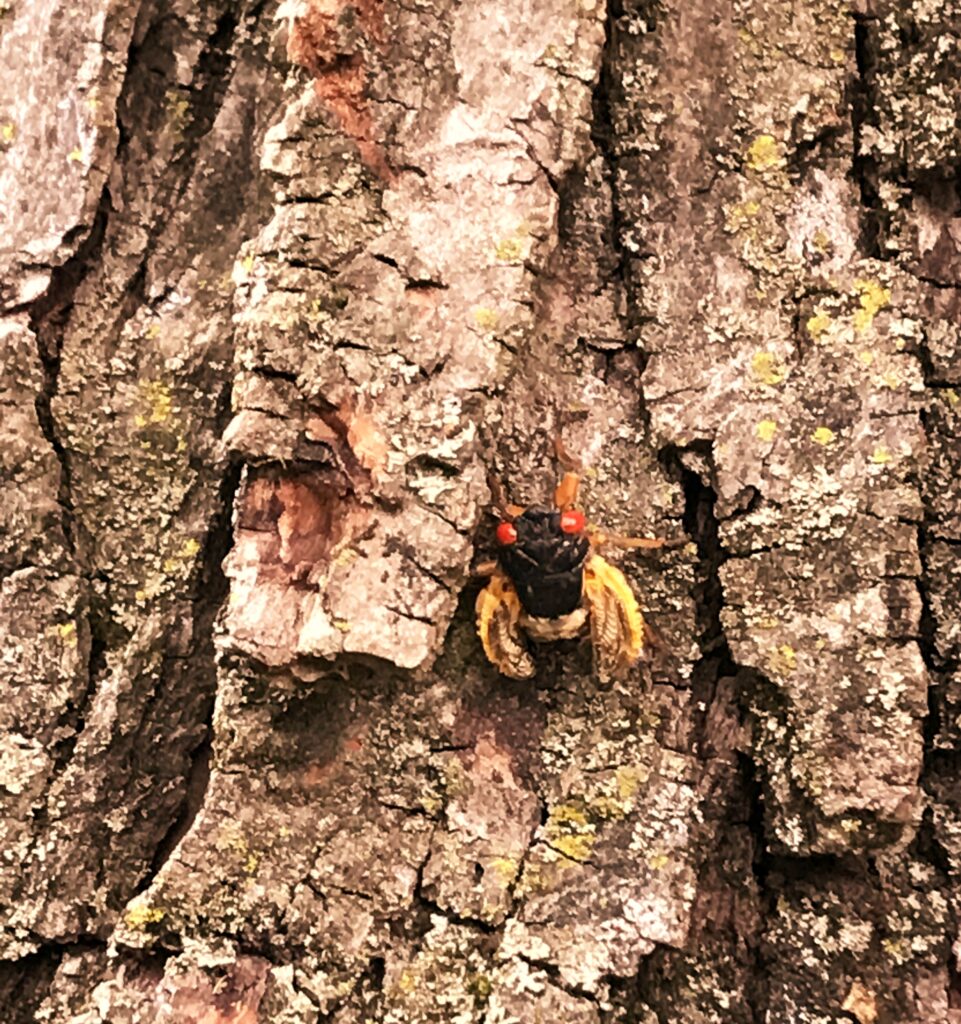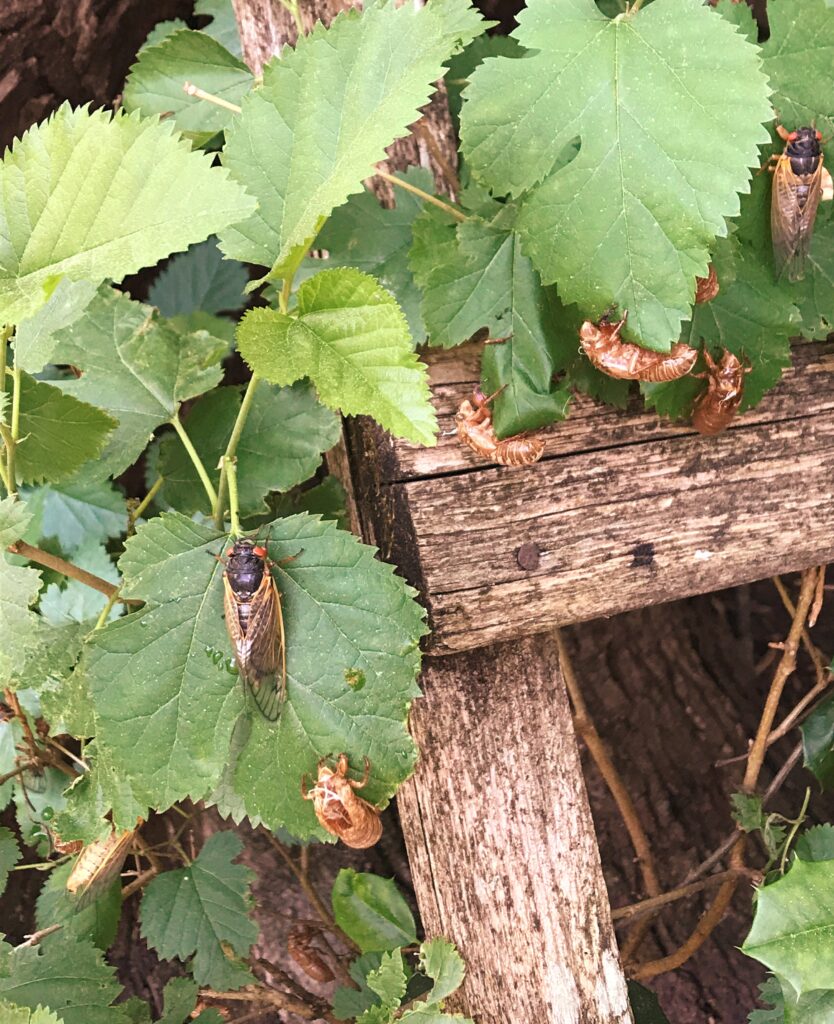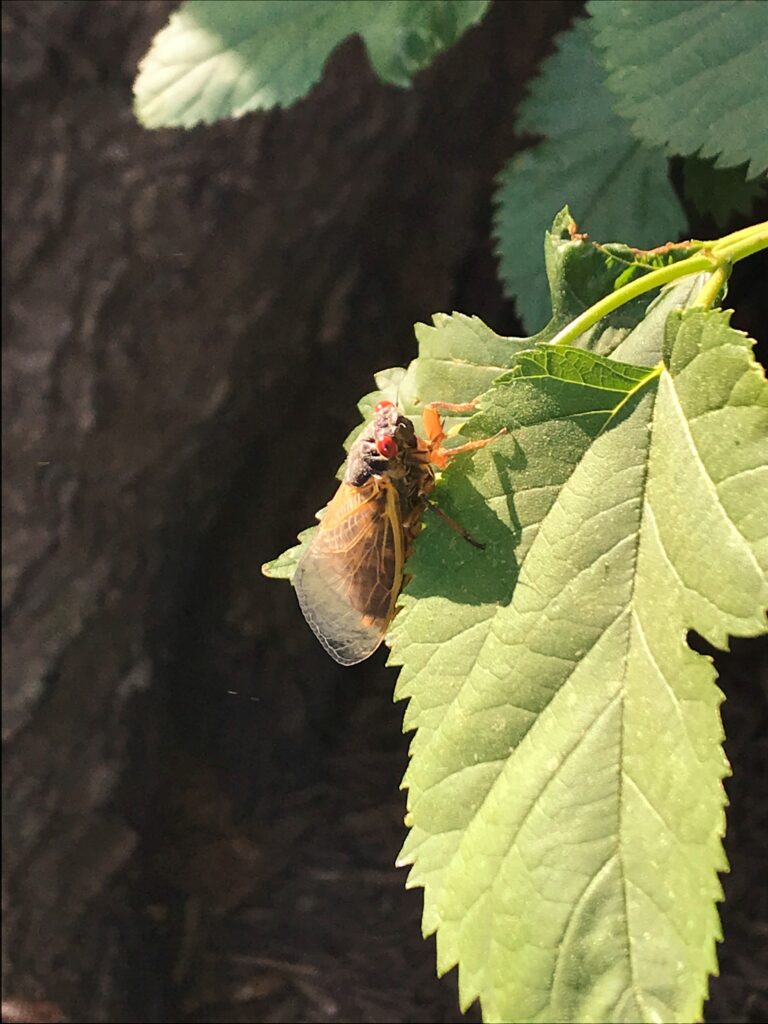Temperatures are climbing into the 90s here in the DC suburbs , and the cicadas are getting the message: it’s time. The pace of their emergence is accelerating. Each morning brings a bigger crowd of Brood Xers in various stages of their short above-ground lives. Yesterday, for the first time, we noticed that their characteristic buzzing could be heard in our neighborhood. At first, it might be mistaken for the roar of highway traffic a few miles away, or heavy machinery droning in the distance. Today it’s much louder. Our daughter could hear the sound over the phone as I stood on the porch talking with her. We were discussing the logistics of our attending her graduation ceremony tomorrow in Charlottesville at the University of Virginia. The last appearance of Brood X coincided with her Kindergarten orientation. Taking stock of one’s life in seventeen-year spans is a daunting exercise, one I may attempt in a future post.
As our yard fills up with more cicadas, I notice that they seem smaller and more delicate than I remember. Was it just because in our daughter’s little five-year old hands, the insects looked larger in 2004? I don’t think so, because I saw them in my full-grown hands, then and now. Is it that our our memories naturally tend toward exaggeration and hyperbole? I don’t know. I only know that I was expecting bulkier, more substantial creatures. Those I’m seeing now seem almost dainty.
Today in 2021, I’m struck by their vulnerability. Maybe I feel this way simply because I’m older. Or because the covid pandemic has kept reminding me, and all of us, for over a year, of life’s fragility. I certainly don’t remember encountering so many struggling cicadas. Repeatedly, I come across those having difficulty emerging from their shells. They appear to be stuck, not quite in and not quite out. Did the long spell of cooler-than-usual weather adversely affect their ability to molt? Others have successfully exited their exoskeletons, but they’re physically challenged in various ways. A wing is twisted, folded, malformed or too small. I found one that appeared to be miniature in all aspects except for its head and eyes. What a cutie it was, with a short body and tiny wings that looked to be edged with frills and coated in golden dust. And all around, I see cicadas that appear to be perfectly formed, yet having considerable difficulty adjusting to the new life phase. With every glance at our front porch, I see one or more flipped on its back, legs moving frantically in the air. I see some that have lost half their body to a predator, yet continue, doggedly, to crawl. Our lawn teems with nymphs and the newly molted attempting to maneuver through a hostile terrain of grass blades. I avoid walking through the yard, even though I want to check out the cicada action around our silver maples. My husband debates how best to time his mowing of the lawn. When will the massacre it entails be less pronounced?
I’m hoping that once the Brood X onslaught is in full force, there will be so many cicadas around that those facing hardship will be less evident. With temperatures expected in the high 80s over the next week or so, we should soon be entering peak emergence. Until then, though, I’ll continue to commiserate with all the struggling cicadas I see. I will attempt to rescue some, just as I occasionally move a worm from the middle of the street. It’s not that I place such an extraordinarily high value on the lives of these insects. It’s not that I deem them more important than people. Quite the opposite. It’s that, in their struggles and frailties, I see those of humankind. In their vulnerability, as well as in their persistence, I see the human condition.
This afternoon, on a very slow, hot walk with Kiko, I came across a cicada in the road. It looked healthy. I picked it up, and it buzzed vigorously in my hand. I took the perky little guy to a nearby tree, where he left my finger easily and began walking up the trunk with confidence. I saw, or imagined, a peppy spring in his step. This one would seize his hard-won day in the sun. I returned home feeling optimistic, for Brood X as well as for my human brothers and sisters.





Thank you for these perspectives. I never thought of these oddities as metaphors. You are definitely taking us deeper.
I’ve always tended to see human suffering reflected in that of our animal and insect brothers and sisters.